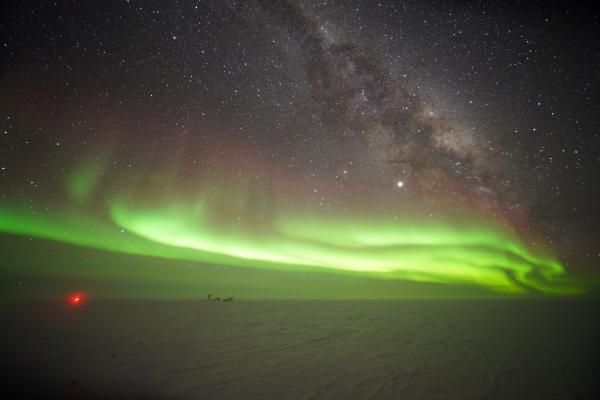IceCube Collaborators win the 2021 Bruno Rossi Prize

The 2021 Bruno Rossi Prize has been awarded to Francis Halzen and the IceCube Collaboration “for the discovery of a high-energy neutrino flux of astrophysical origin.” Prof. Michael Stamatikos is one of the contributors to this collaboration.

The Bruno Rossi Prize is awarded annually by the High Energy Astrophysics Division of the American Astronomical Society. The 2021 HEAD awards were announced last night at the 237th AAS Meeting, which is being held virtually. Named after Italian experimental physicist Bruno Rossi—who made major contributions to particle physics and the study of cosmic rays, launched the field of X-ray astronomy, and discovered the first X-ray source, SCO X-1—the Rossi Prize is awarded “for a significant contribution to High Energy Astrophysics, with particular emphasis on recent, original work.”
The IceCube Collaboration is made up of over 300 researchers from 53 institutions in 12 countries. Halzen, the Hilldale and Gregory Breit Distinguished Professor of Physics at the University of Wisconsin–Madison, is the principal investigator of IceCube. The international group maintains and operates the IceCube Neutrino Observatory, a cubic kilometer of ice at the South Pole instrumented with optical sensors that can detect signals from high-energy neutrinos from outer space.
“It is a great honor to have been chosen as recipients of the 2021 Bruno Rossi Prize,” said Olga Botner, professor of physics at Uppsala University and former spokesperson for the IceCube Collaboration. “The discovery of the ubiquitous flux of high-energy cosmic neutrinos represents the culmination of a long-standing dream to explore the universe in a new ‘light.’ We are proud and excited by the recognition of the tremendous collaborative effort leading to this pivotal result.”
Previously, Prof. Stamatikos has contributed to two other collaborations awarded the Rossi Prizes: Swift (2007) and Fermi (2011). Congratulations!
Read more: WISC News
